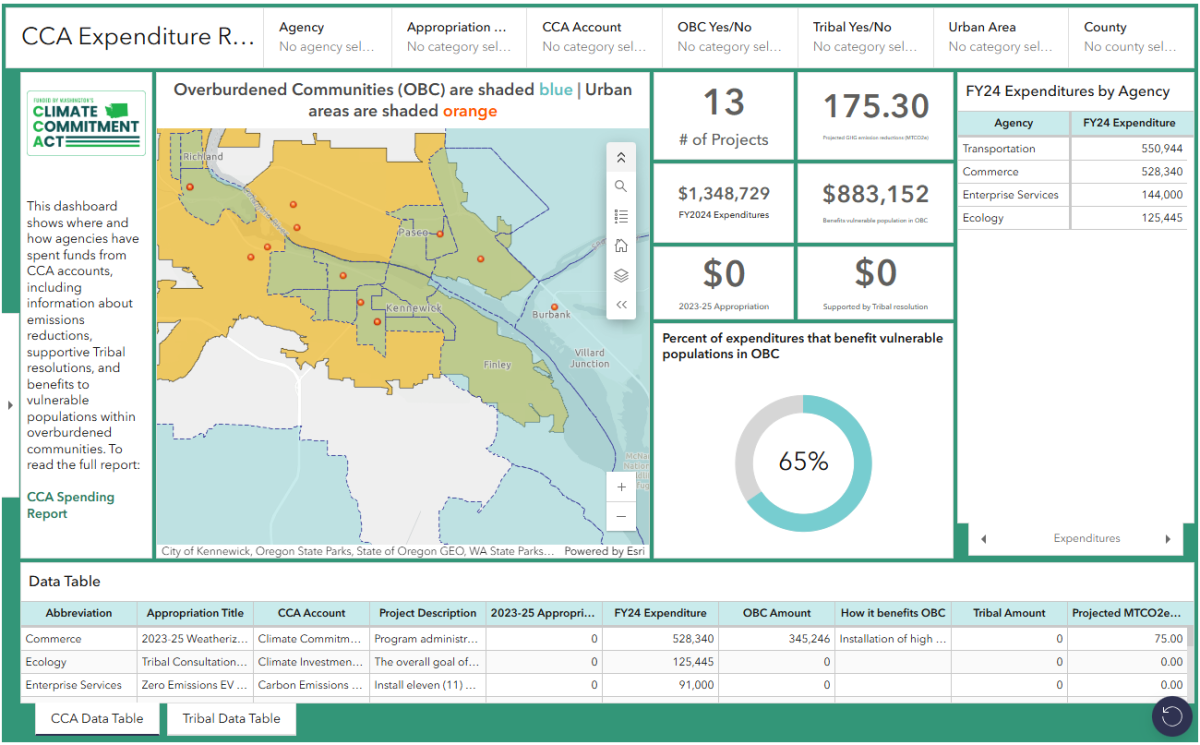Other pages about the topic: Climate Commitment Act
 OFM published a Climate Commitment Act dashboard for fiscal year 2024 in November 2024. The dashboard allows users to find where CCA revenue is being spent around the state, and for what kind of projects.
OFM published a Climate Commitment Act dashboard for fiscal year 2024 in November 2024. The dashboard allows users to find where CCA revenue is being spent around the state, and for what kind of projects.
The Climate Commitment Act (CCA) sets a declining cap on greenhouse gas emissions and requires the state’s largest emitters to purchase allowances for their planet-warming pollution. The law requires the Legislature to invest revenue from this cap-andinvest program to reduce emissions and create jobs, including in clean buildings, transportation, and improving community resiliency in the face of climate change.
Washington’s Climate Commitment Act (RCW 70A.65.200(10)) requires OFM to submit a report to the Legislature summarizing two categories of state laws: laws that regulate greenhouse gas emissions from stationary sources and laws whose implementation may effectuate reductions in greenhouse gas emissions from stationary sources.